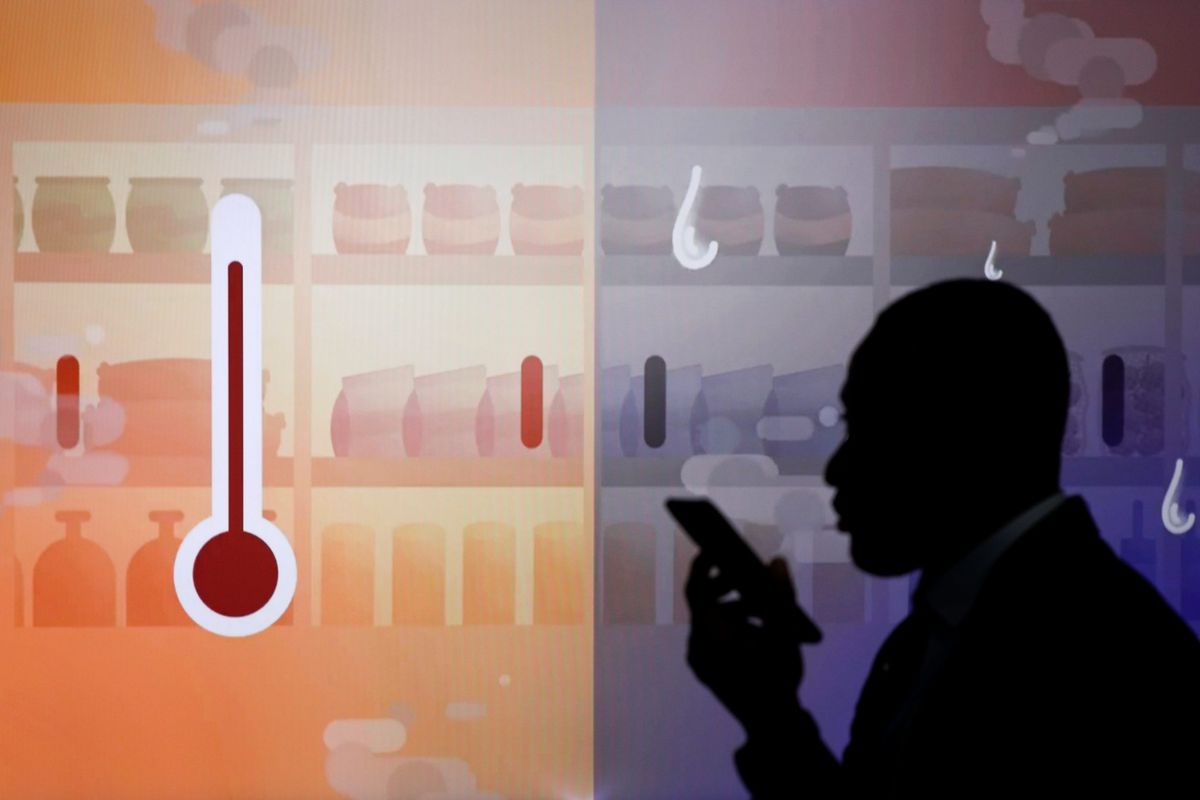COP26: “We can’t afford despair,” says environmental law expert

A few minutes every morning is all you need.
Stay up to date on the world's Headlines and Human Stories. It's fun, it's factual, it's fluff-free.
One big downside of the introduction was that, even though world leaders are pledging to do more to stop climate change, it still isn’t enough.
What’s the COP26 climate conference?
- The COP26 stands for the 26th conference of parties who signed a United Nations convention on climate change in 1994.
- These kinds of conferences give world leaders the opportunity to show what they’re doing to fight climate change, discuss and negotiate how to fight it better.
- The first part of the conference, where world leaders present what their countries have been doing to fight climate change, just wrapped up.
- Now, we’ve entered a week and a half worth of negotiations and talks between countries to reduce carbon emissions.
- Another main focus of these talks is ensuring that the expectations around carbon reductions are equitable. This means, among other things, that richer countries help out developing ones.
What was the take-away from the first part of the conference?
- According to Durwood Zaelke, an environmental law expert and president and founder of the Institute for Governance and Sustainable Development (IGSD), there was one big piece of good news.
- “You can see the energy and the anger of the young people,” said Zaelke. “So much of it on the outside of the meeting, rightly demanding that their elders finally do their job, listen to the science, and take the historic and literally revolutionary action necessary to keep the planet safe for all of us.”
- “And what’s happening that I think is really important,” he said, “is that the heads of government are finally beginning to recognize the true climate emergency.”
- Zaelke talked about the parts of problem-solving and said that the first step is always recognizing the problem. And, in this instance, climate change is an emergency that’s already beginning to happen.
- Now that world leaders have mostly come to a consensus about part one, the next step, he said, is to begin the “series of races” to solve the problem.
What’s the series of races?
- There are really three stages of solving the climate crisis, which, Zaelke refers to as the “series of races.”
- “The first race we have to win is a 10 year sprint to take out the super climate pollutants and slow the warming of the planet quickly,” he said. Think of this first race as a 100-meter sprint, with the finish line being the year 2030.
- “We have to win that race so that we can stay in the next race, which is a marathon to 2050 as we decarbonize the world, and shift to clean energy as quickly as we can.” This would basically mean that we get to net-zero emissions as a planet as soon as possible.
- “Then finally, we also have to win an ultra marathon,” he said. This is where we would “learn to take CO2 out of the atmosphere faster than the natural cycle,” essentially working to erase the impact of carbon emissions on the climate and planet.
Was anything achieved from part one, though?
- According to Zaelke, there are two pieces of good news to come from this first part.
- “The first one is that more than 100 countries have pledged to stop deforestation, stop destroying our forests,” said Zaelke. “And they have pledged to do this by 2030, and that’s the right time frame.”
- The prominent signatories of this agreement included the United States, China, Brazil and 125 other countries that pledged to conserve forests.
- “Second is a pledge by more than 100 countries,” said Zaelke. “As of yesterday, it was 103 plus the US and the European Union, to cut methane, the super one of the super blooms by 2030.” Methane, according to Zaelke, is one of the “super pollutants” that countries are trying to get rid of.
- The good news about these super pollutants, though, is that even though they have a more significant climate impact than carbon dioxide, they actually also leave the atmosphere more quickly.
- “So when we stop emitting them, they produce cooling for us in a very short period of time, days, to months to a few years.” So basically, once we stop emitting them, the results are quick.
But, were there any downsides to part one?
- One big downside of the introduction was that, even though world leaders are pledging to do more to stop climate change, it still isn’t enough.
- And these commitments don’t always even get carried through entirely, meaning that they’ll be less effective overall. This was explicitly laid out in the UN’s climate report going into the conference.
- The second big downside of the introduction wasn’t so much about what isn’t happening, but rather about who isn’t at the table: China and Russia.
- Neither Chinese President Xi Jinping nor Russian President Vladimir Putin were at the conference or provided new commitments, drawing criticism from other world leaders.
- “Not only Russia, but China, basically didn’t show up in terms of any commitments to deal with climate change,” said US President Joe Biden. “There’s a reason why people should be disappointed in that. I found it disappointing myself.”
What are China and Russia saying?
- It isn’t totally clear why neither Xi nor Putin showed up at the summit, but their respective governments have given reasons why the leaders couldn’t attend.
- Xi provided a written statement to the summit members, but it’s believed that he hasn’t left China since the start of the pandemic due to fears of potentially spreading the virus.
- Putin also expressed concern about spreading COVID-19, but didn’t provide a written statement.
- Some have pointed out that, especially for Xi that the political landscape at home is challenging, and perhaps attending a summit abroad would be taken poorly.
Are other countries trying to get China and Russia to come to the table?
- Yes, and according to Zaelke, they’re doing it in two major ways.
- The first way discussed is through trade sanctions against countries that don’t cooperate on meeting climate goals.
- “So if Russia wants to sell natural gas, or better called fossil gas to Europe,” said Zaelke, “and that gas is produced and transported through a system with very serious methane leaks, we’ll see those leaks.”
- “And we’ll say to Russia, ‘You can’t sell that gas in Europe, unless you pay a border tax of that extra emissions that we will then take care of through other offsets.’”
- The second way, though, is through cooperation with them on smaller climate projects, Zaelke called “sectoral agreements.”
- These agreements would include stopping deforestation, a pledge signed by Russia and China.
What’s next?
- Zaelke said that “we can’t afford despair” in the fight against climate change.
- He compared today’s movement of young people fighting for climate justice to Americans who protested the Vietnam War in the 1960s.
- “We were faced with an unjust war that was killing us,” he said. “We were being drafted and sent to Vietnam to die. 58,000 people plus all the ones we killed in Vietnam. And we stopped the war. We did it with anger, we did it with political sophistication.”
- “Your battle will go on for your lifetime,” he said. “Don’t ever stop political activism. But also train yourself, whatever your discipline is. If you’re a journalist, if you’re a psychologist, if you’re a magician, whatever it is, learn about climate and do your piece of the solution.”
Click here for more information about Durwood Zaelke’s book “Cut Super Climate Pollutants Now!: The Ozone Treaty’s Urgent Lessons for Speeding Up Climate Action."




Comments ()